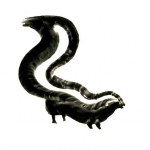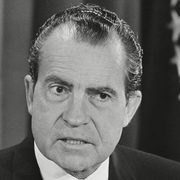|
Yemen president agrees to Gulf plan to resign, over a 30-day transitional period.
|
|
|
|

|
| # ? Jun 8, 2024 21:52 |
|
MothraAttack posted:Yemen president agrees to Gulf plan to resign, over a 30-day transitional period. Holy poo poo. Where's this from?
|
|
|
|
Vincent Van Goatse posted:Holy poo poo. Where's this from? I googled that exact post, the first page results were promising, BBC and whatnot among them.
|
|
|
|
http://english.aljazeera.net/news/middleeast/2011/04/20114231818133946.html "Yemen's embattled president Ali Abdullah Saleh has agreed to a deal by Gulf Arab mediators that would lead to a transition of power in the country after weeks of anti-government protests. Tariq Shami, a presidential aide, told Al Jazeera on Saturday that the president had agreed in full to a proposal from the Gulf Co-operation Council (GCC) for him to step down. The GCC plan would see Saleh submit his resignation to parliament within 30 days, with a presidential vote to be held within two months."
|
|
|
|
Invicta{HOG}, M.D. posted:There are now competing and contradictory articles up on AP with one trumpeting withdrawal and another with full army invasion after an ultimatum. So what does this likely mean? There's something cruel about Gadaffi's forces leaving just so local tribes can crush Misrata (as is suggested in these articles), would these tribes really follow through with this? Or is it just a way for Gadaffi to get his forces the hell out of dodge without calling it a retreat.
|
|
|
|
Hekat posted:So what does this likely mean? There's something cruel about Gadaffi's forces leaving just so local tribes can crush Misrata (as is suggested in these articles), would these tribes really follow through with this? Or is it just a way for Gadaffi to get his forces the hell out of dodge without calling it a retreat. It means that paramilitaries or troops in civilian clothing are going into Misrata. A news report I heard quoted the Ghadafi regime press release as saying that while his army took 'measures to avoid civilian casualties', the 'tribes' would not do so.
|
|
|
|
What does 'the tribes' even mean here?
|
|
|
|
Namarrgon posted:What does 'the tribes' even mean here? In practice, Libya's population is incredibly urbanized and mixed together, and most tribal homelands are located in the increasingly depopulated interior, populated mainly by a few die-hards and some oil towns in the middle of nowhere. There has been no significant sign that the conflict is based on tribal loyalty at all, with the exception of the Ghadaffi clan (for obvious reasons). Any "tribal fighters" that attack Misrata will be loyalist soldiers in plain-clothes. Slantedfloors fucked around with this message at 22:49 on Apr 23, 2011 |
|
|
|
ZetaReticuli49er posted:
We think you're an idiot. That you don't see that your father is clearly a part of the 'we' and kept you from being prosecuted is amusing. And yeah, I keep hearing the 'it's just tribes, the NTC isn't democratic' line....getting a bit tired. Would be nice if people would actually bother to learn something about the situation before telling others how it is. Space Monster fucked around with this message at 22:50 on Apr 23, 2011 |
|
|
|
Really looking forward to the next mega-update by Brown Moses or Shageletic; AP's been off the loving hook today  . .
|
|
|
|
Given what's happened today I think the idea that they were withdrawing from Misrata was false, their remaining troops were either cut off or decided to go down fighting because today, from everything I've seen, they were overrun. Misrata is still dangerous as hell, but it appears the back of Qaddafis forces in the city has been broken.
|
|
|
|
What have you seen? Got any links to video or do you mean news articles?
Lascivious Sloth fucked around with this message at 00:22 on Apr 24, 2011 |
|
|
|
http://english.aljazeera.net/news/africa/2011/04/201142316558110930.htmlquote:Forces loyal to Muammar Gaddafi are locked in a fierce battle for control of the Libyan city of Misurata, amid reports that loyalists of the embattled leader had retreated to the outskirts of the city under opposition fire. quote:10:23am Twitter reports have been even more aggressive, claiming several high ranking figures have been captured/killed, with dozens of enemy troops killed/captured and 8 tanks destroyed. There are also tentative reports that Zuwara and Zawia have kicked off again. If you'll recall both of these cities along to the coast tot he West of Tripoli rebelled prior to Western intervention, but had been re subjugated after a few weeks. farraday fucked around with this message at 00:43 on Apr 24, 2011 |
|
|
|
NY Times is reporting that Saleh has agreed to step down as president of Yemen providing that he and his family are offered immunity. http://www.nytimes.com/2011/04/24/world/middleeast/24yemen.html?_r=1&ref=global-home
|
|
|
|
Fascinating piece in the Guardian today: http://www.guardian.co.uk/world/2011/apr/24/libya-misrata-gaddafi-uprising-rebels This part in particular aroused my interest: quote:Interview: 'We thought that we needed to rescue Misrata' I've seen one other report of captured loyalist soldiers in Misrata saying they'd gone days without food. If true it could be very big news and perhaps a sign of things to come.
|
|
|
|
http://www.youtube.com/watch?v=jf18xcNUgEE&feature=share Video reported to be from inside the clearing of Misrata. The Transitional council has also received additional recognition yesterday from The Gambia, bringing the total number of states to officially recognize it to 6. And a picture of Tripoli street in Misrata. http://twitpic.com/4oomtk farraday fucked around with this message at 02:25 on Apr 24, 2011 |
|
|
|
farraday posted:The Transitional council has also received additional recognition yesterday from The Gambia, bringing the total number of states to officially recognize it to 6.
|
|
|
|
I wonder how many people got shot in the back by their friends during such clearing operations, the way they are handling those guns doesn't seem safe. Speaking of guns, can anyone wise in such matters identify the sniper rifle in this video, I don't know what they are saying but I assume it must be one taken from a Gaddafi forces sniper.
|
|
|
|
No live blogs today, but here's some of what's going on: Yemen: quote:
quote:Tariq Shami, a spokesman for Yemen's ruling party, told Reuters the party had informed the Gulf Cooperation Council "of their acceptance of the Gulf initiative in full". http://www.bbc.co.uk/news/world-middle-east-13178887 Syria: quote:At least 10 mourners were killed in Syria as pro-democracy protesters buried their dead after the bloodiest day yet of an uprising against the county's authoritarian government. Two politicians also resigned from parliament in a sign of growing unease at the government's use of lethal force. quote:As the situation escalates, Syrian observers said the government had made it clear that it intended to cling to power with the use of violence, despite attempts at reform. "They want to push demonstrators to the limits," said Ayman Abdel Nour, a Syrian dissident based in Dubai. He still believed that President Bashar al-Assad had time to show that he was serious about reform. http://www.guardian.co.uk/world/2011/apr/23/syria-mps-resign-mourners-die Libya quote:Forces loyal to Muammar Gaddafi claim to have come under fierce attack as they tried to retreat from the rebel-held city of Misrata. http://www.guardian.co.uk/world/2011/apr/23/gaddafi-forces-attacked-misrata Bahrain: quote:Bahrain's main opposition party says authorities have demolished 16 mosques as part of crackdown on Shiite dissent in the Sunni-ruled Gulf kingdom over the past month. Al Wefaq says 30 Shiite places of worship — including 16 mosques — have been destroyed since martial law was declared last month. http://www.guardian.co.uk/world/feedarticle/9611281 quote:Human rights groups have expressed mounting concern about a security crackdown under way in Bahrain. quote:Hundreds of people have been detained and others have lost their jobs for taking part in protests. http://www.bbc.co.uk/news/world-middle-east-13165821 And here's some other articles examining some of the ramifications of recent developments. Looking at the role of women during the Arab revolutions and afterwards: quote:From the earliest rumblings of discontent in Tunisia at the turn of the year, it was clear that old images of Arab women as deferential, subservient and generally indoors would have to be revised. From the highly-educated Tunisian female elite of doctors, barristers and university professors to the huge numbers of unemployed female graduates, women were key players in the uprising that launched the Arab spring. quote:The Arab spring was not about gender equality. Women in all countries involved say that. But many are alarmed that their efforts risk going unrewarded, and that men who were keen to have them on the streets crying freedom may not be so happy to have them in parliament, government and business boardrooms. As one Egyptian protester told Catherine Ashton, the EU foreign policy supremo, during a recent visit to Tahrir Square: "The men were keen for me to be here when we were demanding that Mubarak should go. But now he has gone, they want me to go home." http://www.guardian.co.uk/world/2011/apr/22/women-arab-spring The after-math of President Saleh bowing out: quote:Those currently aligned against Saleh represent a diverse group of unlikely allies. Youth and civil society activists originally initiated the anti-regime protests and stand at their symbolic core. But over time and for various reasons -- including genuine support for democratic change, opposition to Saleh’s heavy-handed response to the protests, and political opportunism -- established opposition parties, Huthis rebels, some southern separatists, religious leaders, prominent tribal sheikhs, businessmen, and army commanders have joined the protests. Although youth and civil society activists welcome assistance in ousting Saleh, they are legitimately skeptical of the role that some of these forces may play in the future. quote:As both sides send forces to Sana’a in preparation for a potential confrontation, security conditions outside the capital are rapidly deteriorating. The countryside is being left in the hands of tribal sheikhs or popular committees, exposing parts of the country susceptible to al Qaeda infiltration. Indeed, armed militants have reportedly seized several towns in the governorates of Abyan. Groups supporting an independent state in south Yemen have strengthened their control over parts of the south, while the Huthi rebels are in full control of Saada. http://www.foreignaffairs.com/articles/67699/april-longley-alley/yemen-on-the-brink?page=show Kaplan on Syria: quote:Syria at this moment in history constitutes a riddle. Is it, indeed, prone to civil conflict as the election results of the 1940s and 1950s indicate; or has the population quietly forged a national identity in the intervening decades, if only because of the common experience of living under an austere dictatorship? No Middle East expert can say for sure. quote:Remember that Lebanon, Jordan, and Israel are all geographically and historically part of Greater Syria, a reason that successive regimes in Damascus since 1946 never really accepted their legitimacy. The French drew Lebanon's borders so as to bring a large population of mainly Sunni Muslims under the domination of Maronite Christians, who were allied with France, spoke French, and had a concordat with the Vatican. Were an Alawite regime in Damascus to crumble, the Syria-Lebanon border could be effectively erased as Sunnis from both sides of the border united and Lebanon's Shiites and Syria's Alawites formed pockets of resistance. The post-colonial era in the Middle East would truly be closed, and we would be back to the vague borders of the Ottoman Empire. http://www.foreignpolicy.com/articles/2011/04/21/syriana?page=0,1 An overview of the Arab spring: quote:As I look back at these three months of protest and try to find the unifying theme, I think back to the formulation of my mentors. There is a yearning for dignity, as Scowcroft said, and it is producing a political awakening. Of the many words chanted by the crowds in Tahrir Square, one of the most powerful was karama, or dignity. My favorite summary of the emotional core of this movement comes from my colleague Nora Boustany, a Lebanese journalist, who translated for me an Arab proverb: "The artery of shame has ruptured." http://www.foreignpolicy.com/articles/2011/04/22/what_happens_when_the_arab_spring_turns_to_summer?page=0,2 And a look at the liberators of Libya: quote:The Middle East. A man with a car fashioned into a bomb. He disguises his intent by joining a funeral cortege passing the chosen target. At the last minute the man swings the vehicle away, puts his foot down and detonates the propane canisters packed into the car. http://www.guardian.co.uk/world/2011/apr/23/libya-benghazi-gaddafi-revolution Shageletic fucked around with this message at 02:39 on Apr 24, 2011 |
|
|
|
Kaplan and Ignatius? Oy vey. edit for content: A nice video out of Libya of fighters singing in Amazigh https://www.youtube.com/watch?v=ilv7PAK1EcU
|
|
|
|
Freigeist posted:I wonder how many people got shot in the back by their friends during such clearing operations, the way they are handling those guns doesn't seem safe. I'm not sure what that rifle is, but it could be a Russian SV-98. That's just a guess since I can't get a good look at it.
|
|
|
|
Xandu posted:Kaplan and Ignatius? Oy vey. That song should be the official Libya revolution theme song. quote:Where do you want us to go? If things are as they say in Misrata and the Pro-gad forces are as desperate and cut-off from resupply as is reported then this might be the shift we were waiting for.
|
|
|
|
Lascivious Sloth posted:If things are as they say in Misrata and the Pro-gad forces are as desperate and cut-off from resupply as is reported then this might be the shift we were waiting for. This is why I'm leery of anyone calling this a stalemate at this point. While the situation in Ajdabiya may be one, in other places it's not clear what the condition of Ghaddafis forces is. The idea the people will rise gets a lot of flak considering how frequently it is used and misused, but it is also what literally happens in revolutionary situations. It's no guarantee of victory, but the continuing attrition of Ghaddafis army is simply not sustainable. If Misrata's port opens to free resupply the question will rapidly become how much force can Ghaddafi command in the area. It's fairly apparent now they can hold Misrata, the question is if and where the can advance to surrounding cities. This is not the same terrain as the road between Ajdabiya and Sirte, it is a far more significant test for both sides. Edit// http://www.youtube.com/watch?v=F2W8UGbsoE8&feature=channel_video_title Video of the tallest building in Misrata after being cleared by the revolutionaries. farraday fucked around with this message at 06:25 on Apr 24, 2011 |
|
|
|
quote:AP reports: Libya's deputy foreign minister, Khaled Kaim, said troops have halted operations in Misurata to enable tribal elders to negotiate with the rebels. from http://blogs.aljazeera.net/live/africa/libya-live-blog-april-24?sort=asc That's a little different than the government's previous statement in which they said they'd leave it up to the tribes to sort out.
|
|
|
|
Been a busy Easter weekend for me, the only news coming from Misarata at the moment is claims from ChangeInLibya that "Gaddafi militias dressed up as civilians are starting to attack the city from its southern end using heavy weaponry" which is totally unverifiable, and that the city is being bombarded by Gaddafi's forces, so same old story there. This doesn't take away from the significance of the rebels advances in Misarata, and their capture of key locations that have been used by snipers for the past couple of months. That will make it a lot easier for them to operate freely in the city. ChangeInLibya is also claiming the rebels in Zawiyah have regrouped and started attacking Gaddafi's forces that are stationed there.
|
|
|
|
Brown Moses posted:Been a busy Easter weekend for me, the only news coming from Misarata at the moment is claims from ChangeInLibya that "Gaddafi militias dressed up as civilians are starting to attack the city from its southern end using heavy weaponry" which is totally unverifiable, and that the city is being bombarded by Gaddafi's forces, so same old story there. AP now reporting "heavy bombardment" of Misrata as well. Part of me worries that this whole thing has been a fake, and we'll see something akin to the whole Sirte advance again.
|
|
|
|
MothraAttack posted:AP now reporting "heavy bombardment" of Misrata as well. Part of me worries that this whole thing has been a fake, and we'll see something akin to the whole Sirte advance again. I sincerely doubt it; terrain makes a huge difference. Here is a selection of the road to Sirt Here is what it looks like advancing on Misrata from the south. Grad rockets themselves are generally anti personnel as I understand it and are not going to be very effective at forcing people in buildings out. That is completely different from a rocket attack on people and light trucks in the open desert. New reports on twitter that Kuwait is giving the NTC 177 million dollars. farraday fucked around with this message at 18:24 on Apr 24, 2011 |
|
|
|
Going to quote this in full; from an AJE correspondent who was recently in Syria.http://blogs.aljazeera.net/middle-east/2011/04/24/syrian-mourners-cut-down-weeds posted:Every other journalist is trying to get into Syria, but on Saturday I was trying to get out. The government had made it perfectly clear: My visa was expiring and unless I left on April 23, I would "face the full force of the law".
|
|
|
|
Looks mubarak isn't gonna die on Egyptian soil any time soon http://english.aljazeera.net/news/middleeast/2011/04/201142421469638622.html And Misrata is under heavy shelling, Apparently the rebels aren't giving the government in Tripoli any time to do whatever they're planning, and have begun attacking the remaining military forces in the south of the city.
|
|
|
|
Combat video from the rebels in Misurata: http://www.youtube.com/watch?v=7iy4fsaD3Ug&feature=share
|
|
|
|
globe posted:Combat video from the rebels in Misurata: Somebody send a few vids to the rebels, like these: http://www.youtube.com/watch?v=I3XCMNYMHFM&NR#t=0m20s http://www.youtube.com/watch?v=sB96LfLE-sA&feature=related ..and maybe they'll get something done and not look like frightened children OwlBot 2000 fucked around with this message at 02:31 on Apr 25, 2011 |
|
|
|
globe posted:Combat video from the rebels in Misurata: I like how there were guys reloading rifles and then passing them up to the guys shooting on the wall. That's neat, but some pretty bad tactics. The same goes for shooting way over the heads like that.
|
|
|
|
Aiming down the actual sights would probably be the best thing to do
|
|
|
|
See what they are against though? That's a god drat anti aircraft gun.. also they look exactly like how the mercs were described. Awesome how they were moving a construction vehicle around for cover. The only criticism is that they had a perfect shot on that AA gun with an RPG but they wasted it randomly shooting over that wall.. and there is no way that would have hit anything, he didn't even aim. I wonder if that last RPG hit the AA gun. They seemed pretty happy.
|
|
|
|
Lascivious Sloth posted:See what they are against though? That's a god drat anti aircraft gun.. also they look exactly like how the mercs were described. Awesome how they were moving a construction vehicle around for cover. The only criticism is that they had a perfect shot on that AA gun with an RPG but they wasted it randomly shooting over that wall.. and there is no way that would have hit anything, he didn't even aim. Are we sure that was a merc or a rebel? It was kinda hard to tell, I'd figure if it was a merc and they were being shot at they woulda turned but they may have been preoccupied.
|
|
|
|
Those in the AA gun/car were mercs, look at how they are dressed, and the fact the rebels are shooting at them. They are also classically dark skinned as has been described due to the fact they come from Chad, Niger and Sudan.
|
|
|
|
Those were rebels with the anti aircraft gun, the people they were fighting there are holed up in some building shooting out of the windows or through holes in the wall. The video never shows them but at 3:28 you can see the bulldozer getting shot at and the driver fleeing. Edit: All pictures of supposed mercenaries I have seen so far show them wearing military clothing not civilian and you can't even tell their skin-color in this video. Not that it matters since there are plenty of dark skinned soldiers in the regular Libyan army and I have seen a few also on the rebel side despite their supposedly racist attitudes. neamp fucked around with this message at 02:56 on Apr 25, 2011 |
|
|
|
Please knock it off with the skin color analysis. This is the second time in as many days that it's come up and it's been wrong both times.
|
|
|
|
t3ch3 posted:Please knock it off with the skin color analysis. This is the second time in as many days that it's come up and it's been wrong both times. What do you mean it has been wrong, in what sense?
|
|
|
|

|
| # ? Jun 8, 2024 21:52 |
|
globe posted:Combat video from the rebels in Misurata: Christ those guys are brave. 'No guns left? Well shucks, guess I'll just have to make do with my hatchet and go Mel Gibson on these fuckers.'
|
|
|
















 President Ali Abdullah Saleh of Yemen has agreed to step down under a 30-day transition plan aimed at ending violent unrest over his 32-year rule.
President Ali Abdullah Saleh of Yemen has agreed to step down under a 30-day transition plan aimed at ending violent unrest over his 32-year rule.




